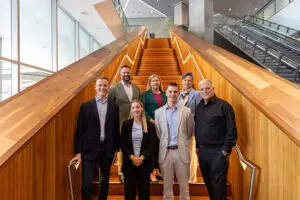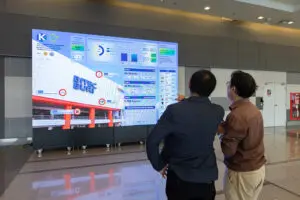The survey from the Society for Incentive Travel Excellence (SITE) and the Incentive Research Foundation garnered 2,852 responses, representing 1,189 buyers across 19 industries, in addition to incentive sellers including suppliers, destination management companies and destination management organisations.
Forty-two per cent of respondents were based in North America, 20 per cent were in Europe and 18 per cent were from Asia Pacific. Local respondents from Oceania made up 4.5 per cent of the total survey pool.
The survey found 37 per cent of buyers expect incentive activity to increase in 2025, rising to 45 per cent of buyers in 2026. Alongside this, 54 per cent of buyers are expecting spend per delegate to increase to match inflation or improve programs in 2025 and 55 per cent believing the same for 2026.
Hotels, followed by airfares then food and beverage are the top areas responsible for cost increases, according to buyers – 50 per cent flagged hotels, 47 per cent flagged airfares and 45 per cent flagged food and beverage.
According to the survey, $4,900 is the average cost of an incentive program per person – micenet assumes this is USD, given both organisations are based in the USA – with the largest proportion of buyers citing $3,000 to $5,000 as their per person range, although 41 per cent of respondents said their per person cost was above $5,000.
When comparing the results of the 2024 survey with 2023, more senior managers consider incentive travel “essential” – at 55 per cent – although there’s been a slight drop in those who consider incentives as a “need to have”.
And in 2024, more senior managers consider incentives important for motivation and culture building – 58 per cent – than for their financial return on investment – 40 per cent.
Using incentives to retain talent was cited by the greatest number of respondents – 81 per cent – as increasingly important while the fourth most important reason was their strategic importance in hiring – selected by 62 per cent of respondents.
“The strategic importance of incentive travel is being bolstered by key workplace trends,” said Incentive Research Foundation president, Stephanie Harris.
“Retaining talented employees and competitive advantages in hiring are cited as increasing in importance, as well as more recent trends such as new generations of qualifiers and leaders and a more dispersed workforce.”
In terms of program considerations and challenges, safety is becoming an increasing factor, with more than 70 per cent of buyers seeing personal safety and geopolitical risk as increasing considerations, while cost is increasingly important for 72 per cent of buyers.
There has also been a significant increase in political considerations with 71 per cent of buyers saying these will override any other considerations, up from 51 per cent in last year’s survey.
The two largest near-term challenges chosen by survey respondents were rising costs and inflation – chosen by 38 per cent – and attracting and retaining talent at 30 per cent. The talent challenge is expected to become more widespread in the longer term, with 37 per cent of respondents citing it as a long-run challenge. The rising costs and inflation challenge is expected to remain largely constant over the longer-run.
Meanwhile, the focus on sustainability and climate change are expected to become much more significant challenges in the longer-run – now just 13 per cent and seven per cent respectively see these two issues as immediate challenges, but in the longer term, 23 per cent and 22 per cent of respondents respectively see them as challenges. Eighteen per cent of respondents believe long-haul incentives will become unjustifiable in a few years because of climate change.
Alongside this, 40 per cent of respondents flagged that they expect to be selecting destinations closer to home in the future – whether this is good news or bad news for the Australian and New Zealand incentive landscapes is hard to say, given our proximity to the considerable population of Asia while acknowledging we are massively long haul destinations for North America and Europe.
“Incentive travel buyers are increasingly looking for something new, with over 70 per cent of respondents indicating they are seeking destinations they haven’t used before,” said SITE CEO Annette Gregg.
“Resorts — both all-inclusive and others — have increased in popularity, and destinations within shorter distances from participant origin are also expected to see increased use.”




















